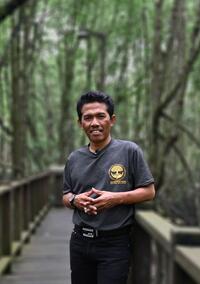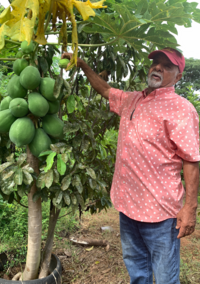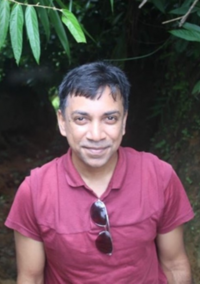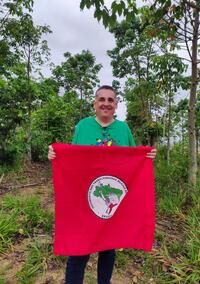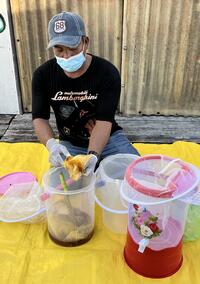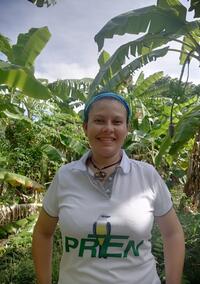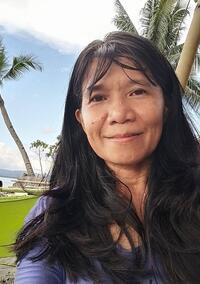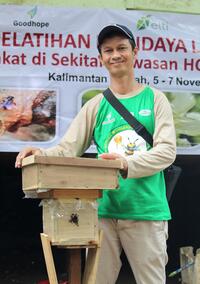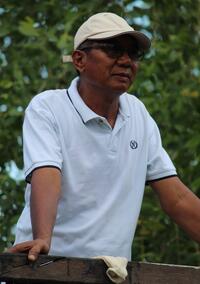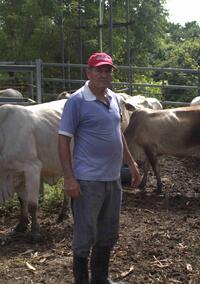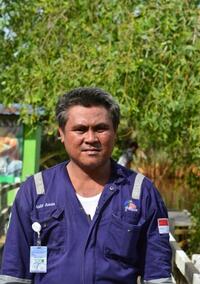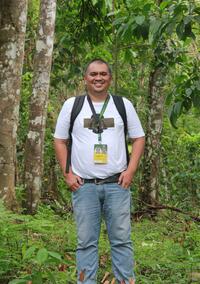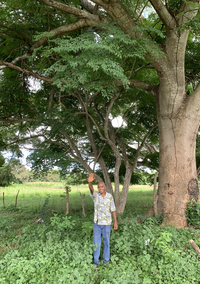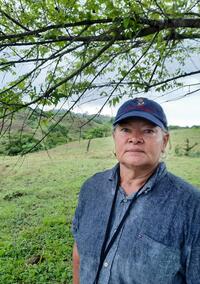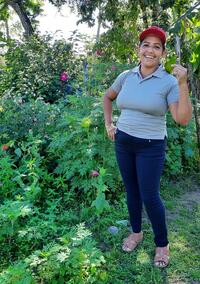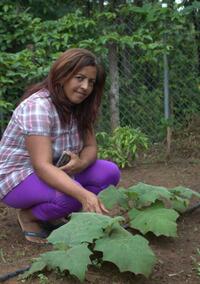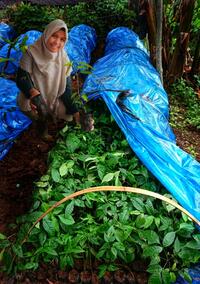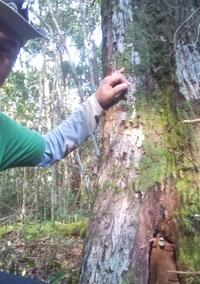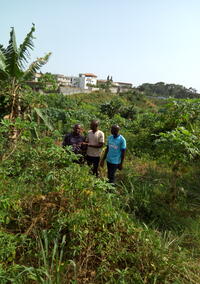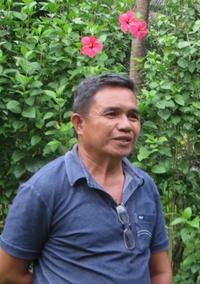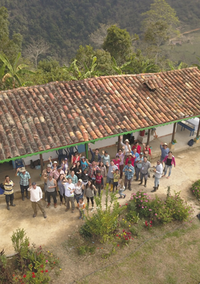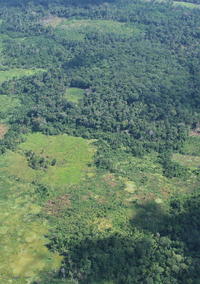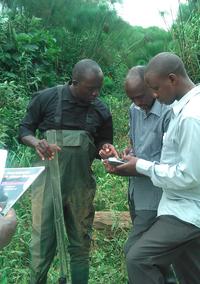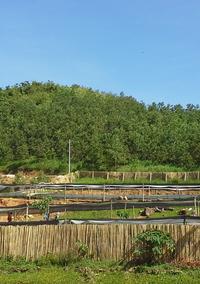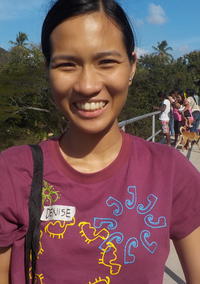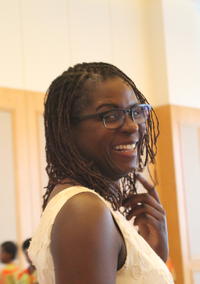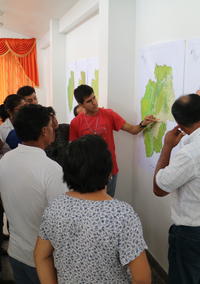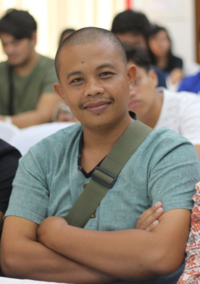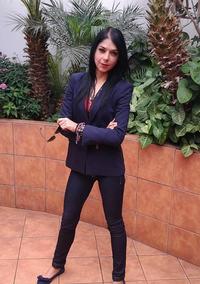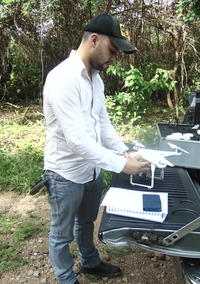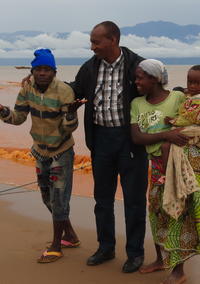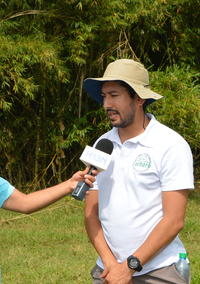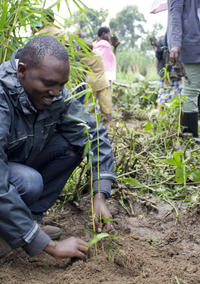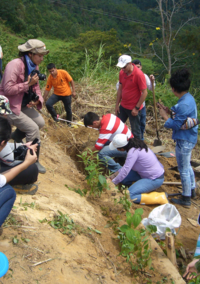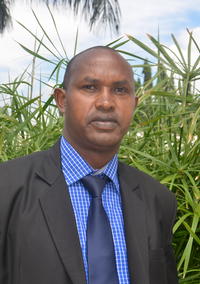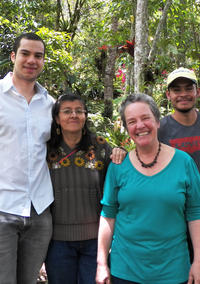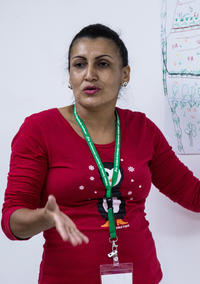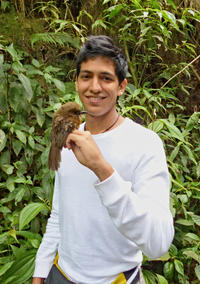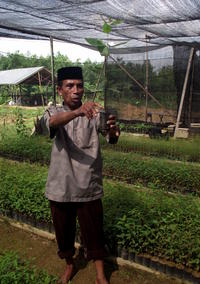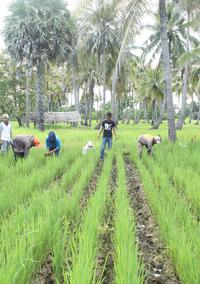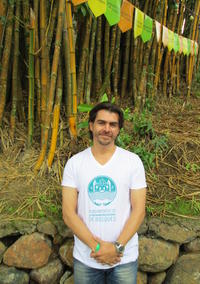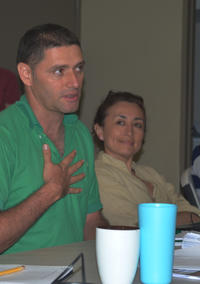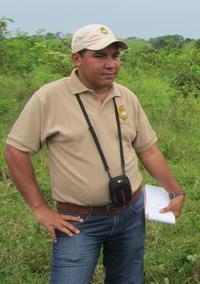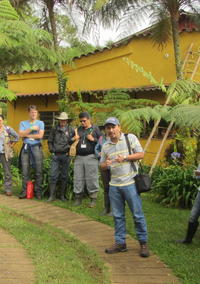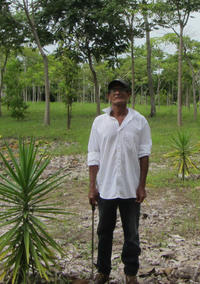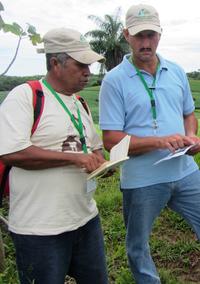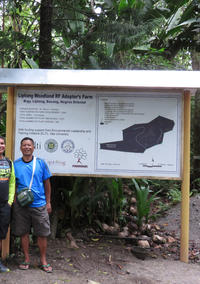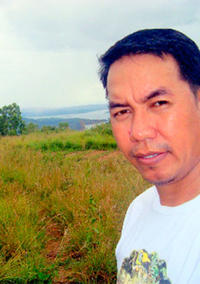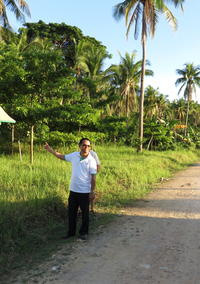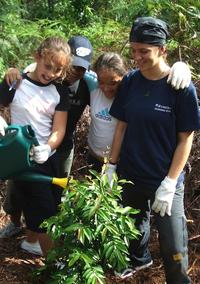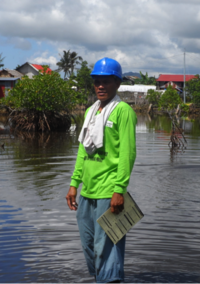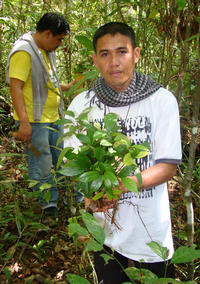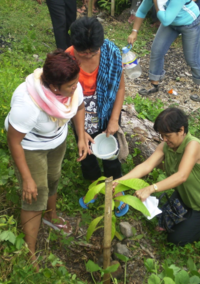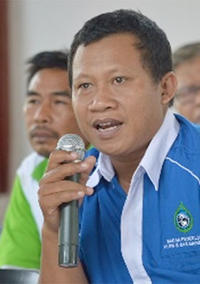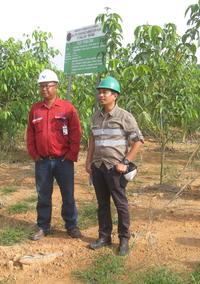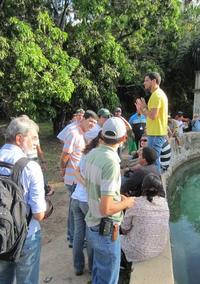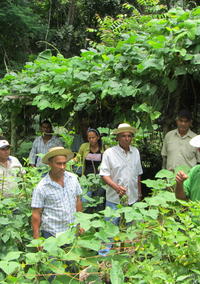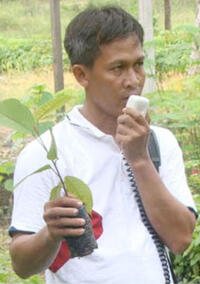You are here
Oil Palm Plantation Staff Member Promotes Beekeeping in Indonesia
ELTI alumnus Charles Conrad works as a corporate social responsibility officer at PT. Agro Indomas, an oil palm plantation located in Central Kalimantan, Indonesia. He first learned about the cultivation of stingless bees (meliponiculture) in November 2019 through a field course conducted by ELTI in collaboration with Goodhope Asia Holdings Ltd. and Yayasan Swarowa. He then further refined his knowledge about meliponiculture through an ELTI online training event entitled, “Beekeeping of Stingless Bees to Strengthen Community Livelihoods” in July 2020.
Charles’ company is a member of the Roundtable on Sustainable Palm Oil (RSPO), which requires that member companies protect, manage and restore High Conservation Value (HCV) areas within their plantations. HCV areas include forest areas with “concentrations of biological diversity including endemic species, and rare, threatened or endangered species, that are significant at global, regional or national levels.” Because these areas cannot be converted to plantation establishment, Charles’ company had been looking into other ways to gain economic benefits from these areas.
Honey production is recognized as one of the best economic opportunities for people living in forest areas. Honey, like other non-timber forest products, can help local community members gain direct economic value from the forest without significantly damaging it. Moreover, meliponiculture can be mixed in with existing livelihoods since it can be done at home on a part-time basis. This strategy is particularly pertinent in Kalimantan, which has been identified as having the highest number of stingless bees in the Indo-Malayan region.
Charles works with community members from villages located in and around his company’s oil palm plantation to promote alternative livelihoods. As part of the initial training, he began gathering honey bee colonies, then started teaching interested community members on meliponiculture techniques. By November 2020, many residents in Lanpasa and Terawan, the two villages for which he is responsible for, had already started producing their own bee colonies. In Lanpasa for example, 15 village members formed a Stingless Bee Group and are caring for Hetereotrigona itama, one of the stingless bee species. The members of the group each currently own between 10–50 bee colonies. A number of those individuals have also started gathering honey from their colonies.
Charles has been working with the governments of Seruyan Raya Subdistrict and Seruyan District to support the development of this local resource in Lanpasa and Terawan villages. The governments’ goal is to develop bee honey as a specialty product of the region. The subdistrict of Seruyan Raya even initiated the development of a small market place to showcase agricultural products, handicrafts and other goods from these villages, including honey. An opening ceremony for the market place was held on November 7, 2020 where Charles received two awards—one from the Department of Public Works & Public Housing and one from the District of Seruyan—for his contribution to the initiative.
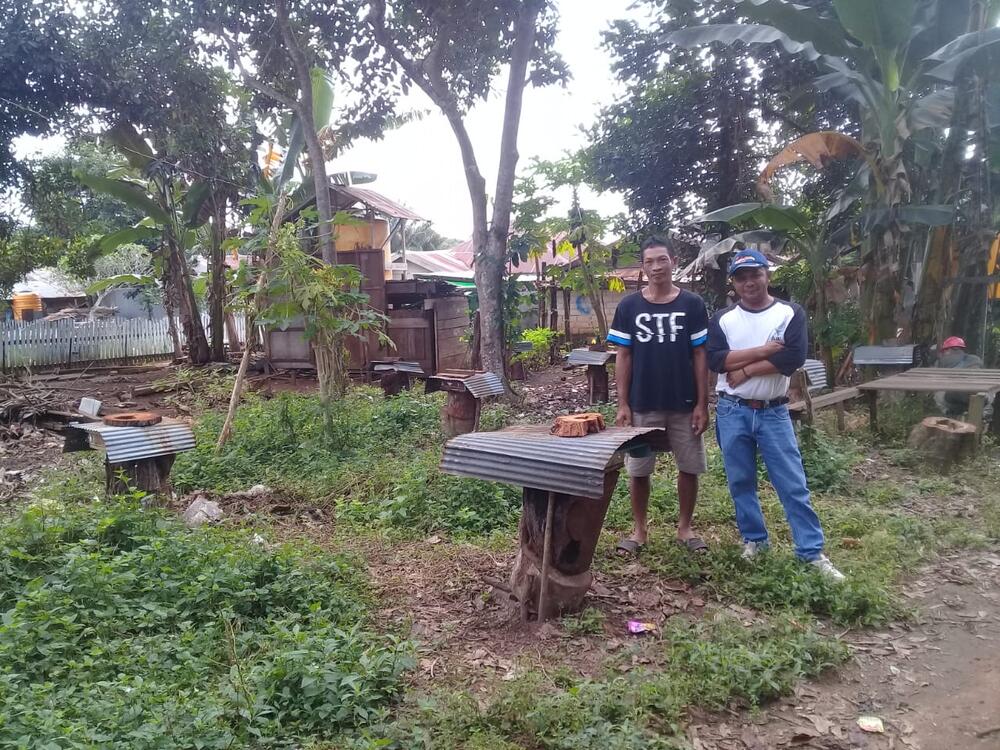
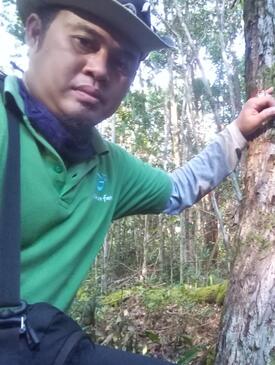
Acknowledgements
Thank you to ELTI, Tropenbos Indonesia and Yayasan Swaraowa for introducing stingless bee cultivation to my company and the community residents I am working with.






